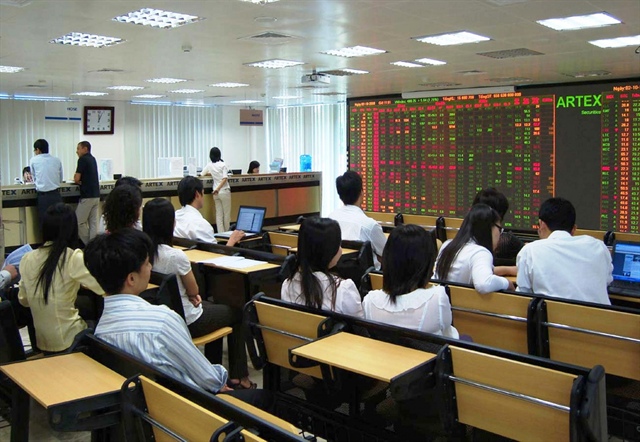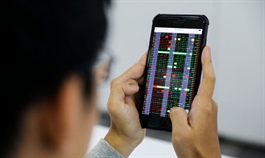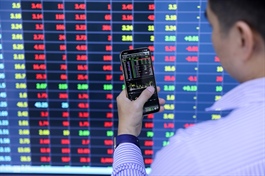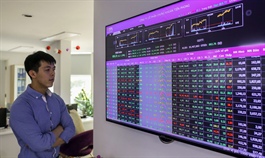Foreign investors’ net selling surge offset by domestic cash flow
Foreign investors’ net selling surge offset by domestic cash flow
Vietnam’s stock market has experienced a high volume of foreign investors’ net selling this year, but cash flows from individual domestic investors have been the main driving force for its development.

The strong domestic cash flow flooding the stock market has spurred the indices |
Net withdrawals of over VND40 trillion
Foreign investors net sold about VND18.9 trillion in 2020, including VND17.723 trillion on the Ho Chi Minh Stock Exchange (HoSE). They also net sold over VND40 trillion of shares in the first nine months of the year. The HoSE saw an additional net selling of VND4.704 trillion in October.
According to the SSI Securities Corporation (SSI), exchange-traded funds (ETFs) have seen net withdrawals over the past two years. More than VND2.3 trillion were withdrawn from the market in September, of which FTSE saw the strongest withdrawal with VND1.275 trillion, followed by VNDiamond ETF with VND990 billion, Fubon with VND153 billion, and V.N.M ETF with VND22 billion.
The net selling was attributed to the impact of Covid-19 and profit-taking on portfolios disbursed in 2019 and 2020 after stock prices surged. Although foreign investors net sell on the stock market, they buy bonds and wait for further investment.
Domestic individuals step in
Although foreign investors withdrew capital from Vietnam, the accumulated outflow value since the beginning of 2021 has accounted for only 0.8 percent of the total portfolio value of foreign investors and lower than the net selling value of foreign investors on the stock market. That means the net selling activities by foreign investors are partly designed to restructure their portfolios, not entirely to flee from the market.
Few investors on the stock market have expressed their concerns about foreign net selling. Although foreign investors have made a strong net withdrawal, it did not affect the market much thanks to a strong domestic cash flow. Domestic individual investors have undertaken strong buying, pulling the market up.
During the March-September period, domestic individual investors opened more than 100,000 new trading accounts per month, bringing the total to 956,081 accounts in the first nine months of the year.
The two stock market rating agencies, MSCI and FTSE Russell, currently rank Vietnam’s stock market as a frontier market, with FTSE Russell adding Vietnam to its watch list for possible future upwards reclassification. Vietnam’s stock market designation as a frontier market has limited investment by large foreign funds, but if the market is upgraded, these funds are expected to increase their activity. However, the upgrade of Vietnam’s stock market depends on many factors from development potential to synchronous policies.
| The strong foreign net selling has not weakened the indices since the beginning of the year as they only account for 8.5 percent of the total investment value in the market. |
























